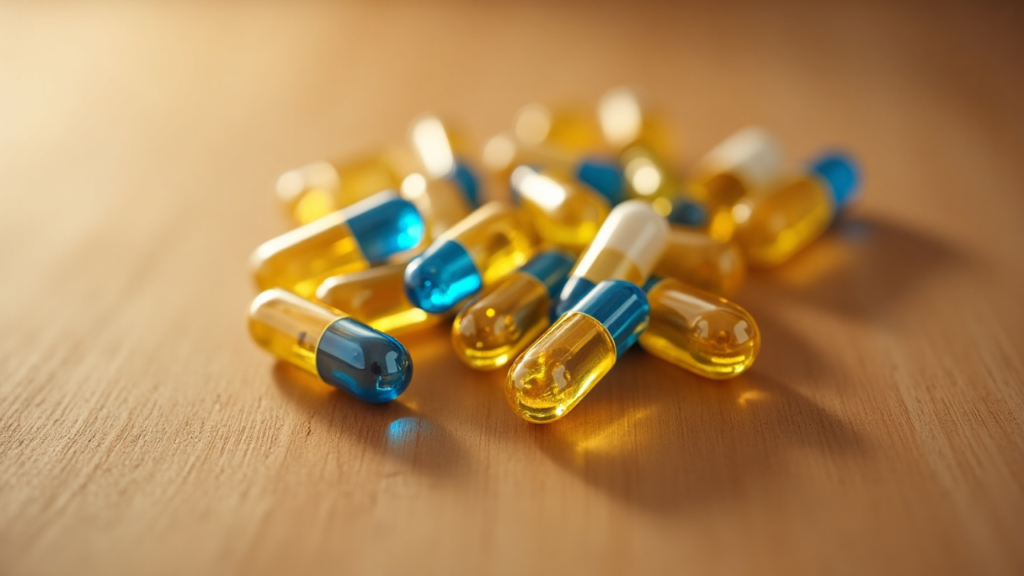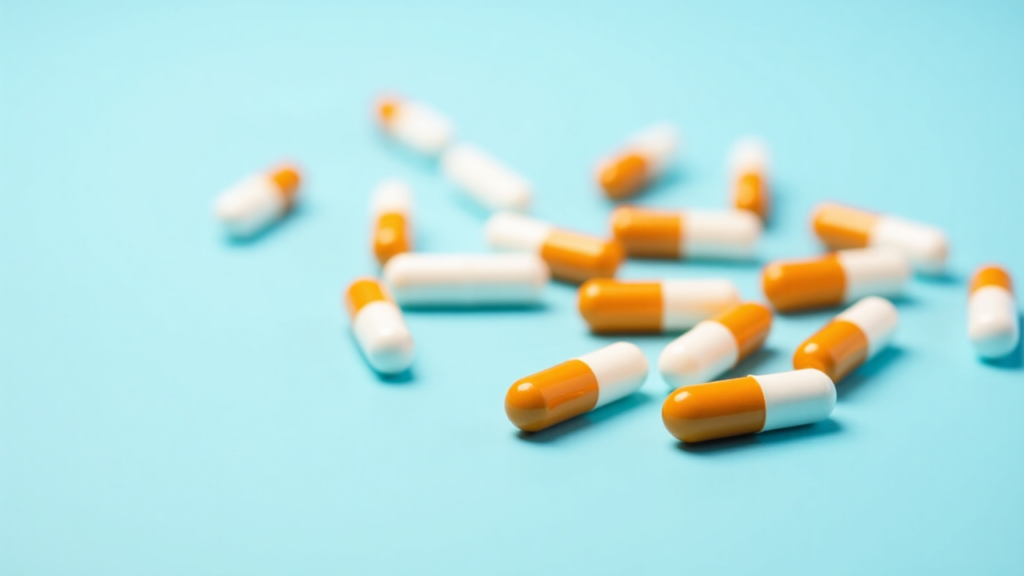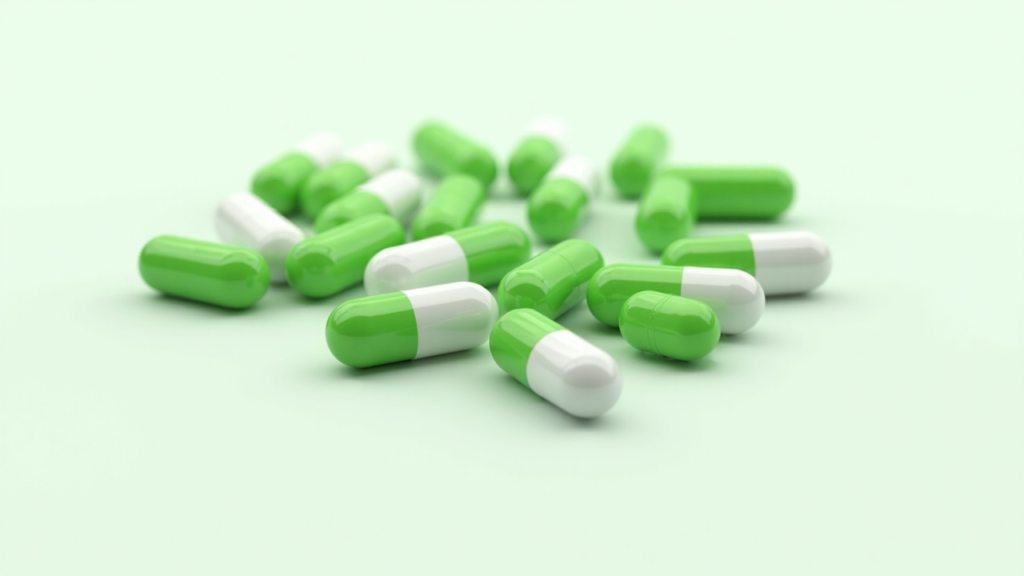Table of Contents
ToggleIntroduction
If you’re searching for the best vitamins for anxiety, you’re not alone. Millions of people experience anxiety symptoms—racing thoughts, restlessness, and constant worry—and while therapy and medication can help, nutritional support is often overlooked. Research shows that specific vitamin deficiencies directly impact neurotransmitter function and stress response, making targeted supplementation a powerful tool for managing anxiety naturally.
In this guide, we’ll explore the top 7 clinically proven vitamins for anxiety, how they work, and the best food and supplement sources to restore calm and resilience.
How Vitamins Help Reduce Anxiety

Anxiety isn’t just “in your head”—it’s deeply connected to nutrient deficiencies, inflammation, and gut health. Key vitamins help by:
✔ Enhancing GABA activity (nature’s calming neurotransmitter that slows overactive neural firing)
✔ Lowering cortisol (the primary stress hormone)
✔ Supporting serotonin production (the “feel-good” neurotransmitter)
✔ Reducing oxidative stress (linked to anxious thoughts)
Now, let’s dive into the best vitamins for anxiety, ranked by scientific evidence.
Top 7 Vitamins for Anxiety (Backed by Research)
1. Magnesium

Why it works:
Magnesium regulates GABA receptors (Study: Journal of Neuropharmacology)
Deficiency linked to increased anxiety and insomnia
Best forms:Glycinate (best for relaxation)
L-Threonate (crosses the blood-brain barrier)
Dose: 300–400 mg/day
2. Vitamin B6

Why it works:
Vitamin B6 is required to produce serotonin and GABA
Low levels correlate with higher anxiety (Study: Human Psychopharmacology)
Best sources:P5P (active form) supplements
Chickpeas, salmon, bananas
Dose: 50–100 mg/day
3. Omega-3s (EPA/DHA)

Why it works:
Omega-3s reduces brain inflammation (linked to anxiety disorders)
EPA specifically lowers anxiety symptoms by 20% (Study: JAMA Network Open)
Best ratio: 3:1 EPA to DHA
Dose: 1000–2000 mg EPA daily
4. Vitamin D

Why it works:
Vitamin D is used to low level double anxiety risk (Study: Journal of Affective Disorders)
Supports serotonin synthesis
Best form: D3 + K2 (for absorption)
Dose: 2000–5000 IU/day (test levels first)
5. Zinc

Zinc is Critical for GABA function
Deficiency causes nervous system hyperactivity
Best sources:Oysters, pumpkin seeds
Zinc picolinate supplements
Dose: 15–30 mg/day
6. L-Theanine

L-Theanine increases alpha brain waves (calm focus)
Reduces stress-induced cortisol spikes
Best taken: With coffee (balances jitters)
Dose: 100–400 mg/day
7. Vitamin C

Why it works:
Vitamin C Lowers cortisol by 30% in high-stress situations
Protects adrenal glands from burnout
Best form: Liposomal for absorption
Dose: 500–2000 mg/day
Best Vitamin Stack for Anxiety

For maximum benefits, combine:
Morning: Vitamin D3 + Omega-3s
Afternoon: Magnesium + B6
Evening: L-Theanine + Zinc
Pro Tip: Pair with probiotics (gut health affects anxiety) and limit caffeine/alcohol (deplete these nutrients).
Foods vs. Supplements: Which Is Better?
| Nutrient | Best Food Sources | When to Supplement |
|---|---|---|
| Magnesium | Spinach, almonds, dark chocolate | If experiencing muscle cramps or insomnia |
| B6 | Salmon, chickpeas, potatoes | If diet lacks protein/whole foods |
| Omega-3s | Fatty fish, flaxseeds | If eating fish <2x/week |
What to Avoid (Anxiety Worseners)

❌ Excess caffeine (depletes magnesium/B vitamins)
❌ Alcohol (disrupts GABA balance)
❌ High-sugar diets (cause blood sugar crashes → anxiety)
❌ Cheap multivitamins (often use poorly absorbed forms)
How Long Until You Notice Effects?
Immediate (1–3 days): L-Theanine, Magnesium Glycinate
1–2 weeks: Omega-3s, B6
4+ weeks: Vitamin D (if deficient)
Final Verdict: Best Vitamin for Anxiety
For fastest relief, our top pick is Magnesium Glycinate + L-Theanine. For sustained neurological harmony, combine Omega-3 fatty acids with optimized Vitamin D levels.
Try this protocol for 2 months, track symptoms, and adjust doses as needed. Always consult a doctor if anxiety persists.

